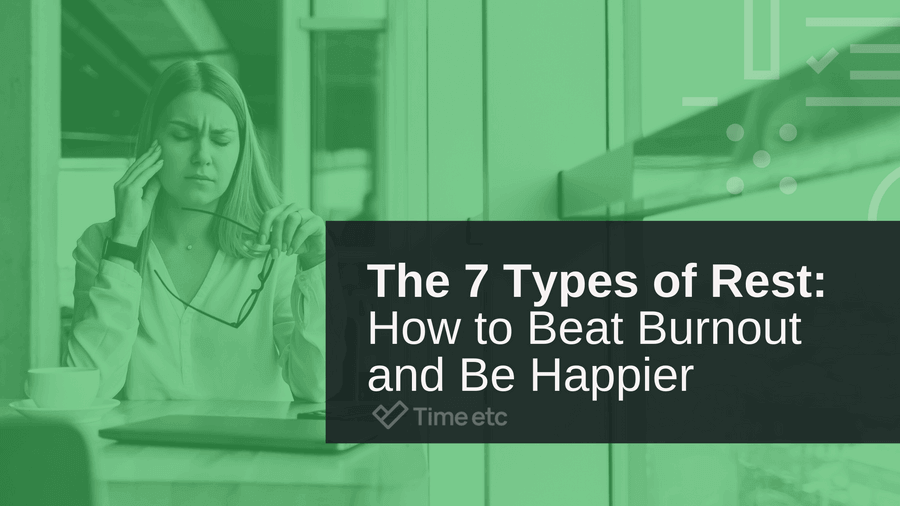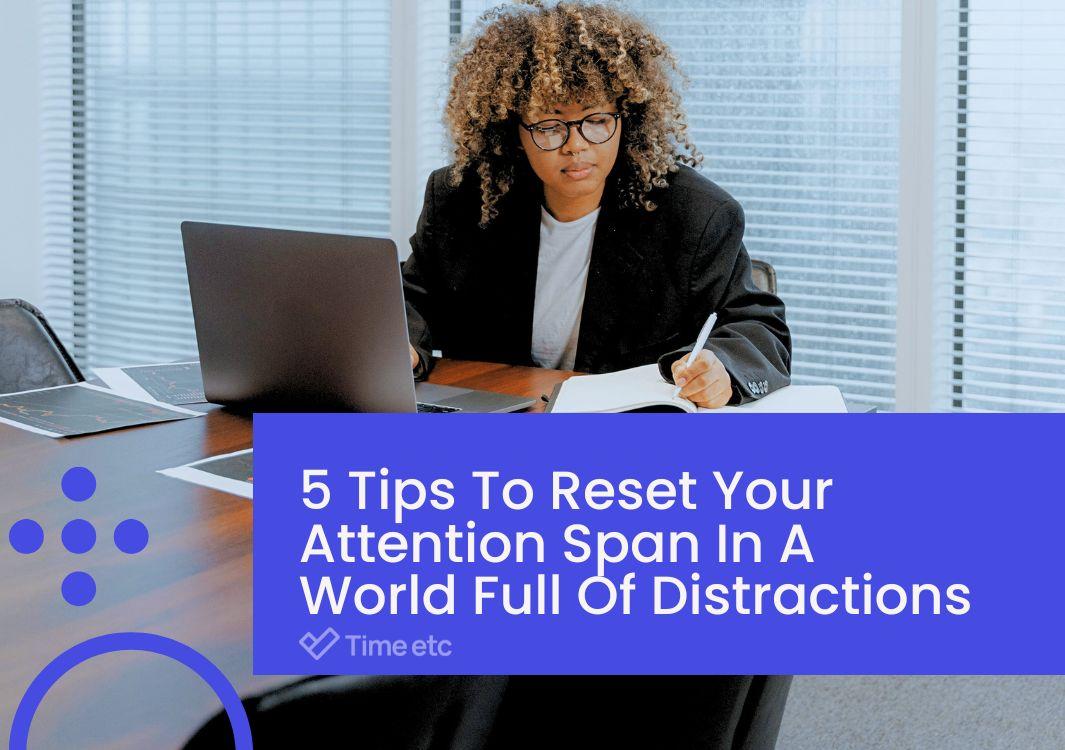If you ask any entrepreneur why they decided to start their own business, most would say their passion for their product, the freedom and flexibility to make their own choices, or the desire to build something from the ground up. And while there are many benefits to being your own boss, it’s not always a walk in the park.
According to recent findings, 86% of business owners work on weekends, 53% work on major holidays, and 60% take one vacation a year. Of those who do take time off, 75% spend that leisure time working. Not only that, being an entrepreneur has been characterized as one of the most stressful jobs to have. This combination of longer working hours, a lack of breaks, and higher stress levels is a recipe for disaster, otherwise known as ‘burnout’.
What Is Burnout?
In 2019, the World Health Organization added burnout to its 11th revision of its International Classification of Diseases as an “occupational phenomenon”. It is defined as “a syndrome conceptualized as resulting from chronic workplace stress that has not been successfully managed. It is characterized by three dimensions:
- Feelings of energy depletion or exhaustion
- Increased mental distance from one’s job, or feelings of negativism or cynicism related to one's job
- Reduced professional efficacy”
Although entrepreneurs and business owners are highly driven and passionate individuals, this does not make them immune from burnout. Quite the opposite, in fact. A recent Gallup survey reported that 44% of its participants (full-time employees) experienced burnout sometimes, compared to over 50% of entrepreneurs.
Why? Because in a culture that thrives on movement and productivity, being busy is a badge of honor. We have more demands on our time than ever, and we can all be guilty of neglecting our bodies and minds in the name of getting things done. However, the physical and mental effects of burnout shouldn’t be ignored.
As burnout follows a state of chronic stress, experts believe that the biological mechanisms that result from prolonged stress can negatively impact physical health, ranging from increased susceptibility to common colds, to a higher risk of cardiovascular disease. Those experiencing burnout are also at an increased risk of developing mental health issues such as anxiety and depression.
If you’ve been feeling caught in a hectic, never-ending cycle of work and stress, then quite simply, you should rest.
Different Kinds Of Rest
As it turns out, sleep isn’t the only form of rest. If you’ve ever still felt exhausted after a full night’s sleep, it’s more than likely that you need a different type of rest to feel restored. It’s based on the idea that as we all have different needs and live different lives, a one-size-fits-all approach to rest is ineffective. In her most recent book, physician, author, and speaker Dr. Saundra Dalton-Smith proposes that there are seven different types of rest.
Here’s how to identify what kind of rest you may be missing out on, and how you can incorporate it into your life to combat burnout and boost your wellbeing…
Physical rest
Perhaps the first thing that springs to mind when we think of “rest”. Of course, everyone needs to sleep, and the benefits of getting enough sleep have been well-documented, but stretching, massage therapy, yoga, and meditation are also forms of physical rest that can replenish your energy.
Desk-based workers might argue that they are rarely physically tired compared to those with a more physically demanding job, but even if you think you're not putting your body under strain, Dr. Dalton-Smith advises that adding “body fluidity” exercises to your daily routine can help significantly.
After every hour of sitting, try three minutes of small movements and stretches. This will help get your blood pumping and reduce the distractions caused by stiff and aching muscles. It’s simple and rewarding, just set a reminder on your phone to get up and stretch, roll your neck, clench and unclench your hands, and rock on your heels.
Mental rest
Do you ever find yourself struggling to concentrate during the day, yet when night comes, getting your mind to switch off seems impossible? Have you been overthinking and being overly critical of everything that you do? If this sounds like you, you’re probably in need of some mental rest.
Chances are you’ve already heard all about the many benefits of taking regular breaks at work, but here’s one more. Stepping away from your PC or workstation every few hours gives your mind the chance to decompress.
Retaining lots of information in your head can be a huge mental burden, too. Offload mental strain by journaling your experiences and documenting things like your work schedule and things you need to get done. Having an external place to transfer your thoughts, ideas, and information, and no longer having to deal with the stress or worry that you might forget something, will feel like a huge weight lifted.
You could also try meditation or mindfulness exercises to help declutter and reset your mind after a tough day of information overload.
Sensory rest
The need for sensory rest is probably one of the most common in today’s world, thanks to the prevalence of technology in our everyday lives. Whether it’s the bright artificial lights and computer screens in the office, distracting overlapping conversations, the constant pinging of notifications, or the glare from smartphones, tablets, and TVs at home, this can cause our senses to be overstimulated and can lead to us feeling drained.
Even as you read this post online, you may not realize how bright the screen is compared to a piece of paper. There could also be colorful and animated adverts fighting hard for your attention. If like many people, after a long day working in front of a computer screen your go-to way to unwind and recuperate for the next day is to watch TV, play video games, or scroll on social media, you may not be getting the sort of rest you need to feel fully restored.
Although unfortunately, it might seem hard to avoid your senses being overstimulated (would it even be possible to run a business with just pen and paper nowadays?), there are simple ways you can overcome it. Taking a break from your computer, stepping outside for some fresh air, or scheduling device-free time in the evenings can all help calm your senses.
Creative rest
If you’re responsible for solving problems, brainstorming new ideas, organizing events, or planning strategies, this may be one for you. Writer’s block, feeling uninspired, or a lack of new ideas are all signs you need creative rest.
The most ideal solution is to immerse yourself in places that inspire you while putting your mind at ease. Whether that’s the great outdoors, an exciting city, an art gallery, a museum, whatever speaks to you the most.
Another option to consider is creating a mood board for your workspace. Fill it with things that get your creative juices flowing so you’ll always have inspiration close at hand.
Emotional rest
Regulating your emotions requires not just mental energy, but physical energy too. So if traffic has made you stressed, your children have been testing your patience, or you are feeling unappreciated at work or at home, taking time for emotional rest is vital.
But what is emotional rest and how can you incorporate it into your life? The answer is simply, “let it all out”. Experts say that suppressing negative emotions can lead to issues such as anxiety, depression, low self-esteem, and dysfunctional relationships. Write down how you feel in a journal, or share how you’ve been feeling with a trusted friend or loved one.
Restoring yourself emotionally after a tough day means you’ll be much better equipped to handle the many demands of entrepreneur life and focus on your business growth.
Social rest
By our nature, humans are social creatures and the success of our species has depended on strong relationships with others. But this doesn’t make social rest any less important than the other six types. The signs that you’re lacking this sort of rest can vary depending on whether you're more introverted or extroverted.
Do you find yourself drained after socializing or interacting with certain people? Simply scheduling some “me time” or making plans with a friend or family member who knows you inside and out could be just what you need to recharge.
Or, is a lack of socializing making you feel lonely or isolated? To help you get back on form, aim to spend time (either in-person or virtually) with people who support you and bring out the best in you.
Spiritual rest
Last but certainly not least, if you’re feeling a bit unmoored, disconnected, or lacking purpose, these are the tell-tale signs you need spiritual rest.
If you are a person of faith, this could include reconnecting with your religion through prayer or engaging with others at your place of worship. If you're not religious, getting involved in your community, joining local groups, or volunteering could help you regain a sense of purpose.
Spirituality can come in many forms, but what matters is that you feel aligned to your sense of spirituality, however you define it.
What’s the Bottom Line?
Despite our best intentions, burnout is a common problem for many entrepreneurs. Many tend to think of rest, breaks, or downtime as the antithesis of action, and so with all the pressure and demands of running a business, the need to recharge and recover is often overlooked. But the truth is that we are not machines, and being a successful business owner isn’t about being superhuman and neglecting our bodies and minds. From physical to mental and even spiritual, rest is key to a happy and productive life.







